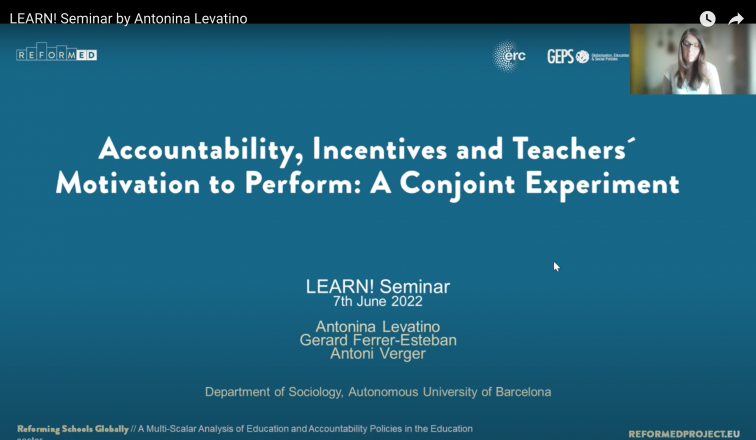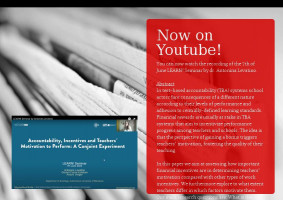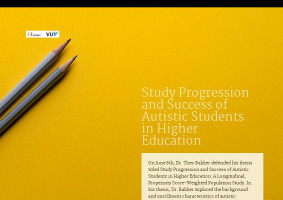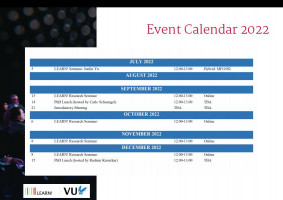_w1700_h1200_1.jpg)
Now on Youtube!
You can now watch the recording of the 7th of June LEARN! Seminar by dr. Antonina Levatino.
Abstract
In test-based accountability (TBA) systems school actors face consequences of a different nature according to their levels of performance and adhesion to centrally-defined learning standards. Financial rewards are usually at stake in TBA systems that aim to incentivize performance progress among teachers and schools. The idea is that the perspective of gaining a bonus triggers teachers’ motivation, fostering the quality of their teaching.
In this paper we aim at assessing how important financial incentives are in determining teachers’ motivation compared with other types of work incentives. We furthermore explore to what extent teachers differ in which factors motivate them. Our main research questions are: What is the motivational strength of financial rewards? To what extent teachers systematically differ in the importance they give to different work motivations, also according to their school contexts and working conditions?
To answer these questions, we use a conjoint experiment inserted in a survey (Levatino, 2021) administered in a representative sample of schools in countries with different accountability policies (Chile, Norway, Spain). Teachers were asked to choose between different working scenarios that simultaneously varied in five characteristics. This design allows us to compare on a common scale the strength of each characteristic in explaining the preference for a given working scenario and studying teachers’ preferences over multiple dimensions.
This research contributes to existing research in several ways. First, it explores for the first time how financial incentives, considered simultaneously with other relevant work motivations, are perceived by teachers. Second, the experimental approach contributes to overcome the limits of direct questioning regarding the potential social desirability bias at stake. Third, as experiments are still underused in this research area, our methodological approach could inspire future research. Finally, from the policy point of view, it provides empirical inputs to the discussion on the policy implications of extrinsic incentives.
















